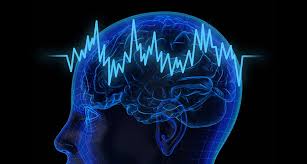
Since ancient times, d3ath has remained one of humanity’s deepest and most enduring enigmas. Despite major advancements in modern science and a thorough grasp of human physiology, the precise experiences during the final stages of life—and immediately following clinical d3ath—continue to provoke awe and curiosity.
A groundbreaking new study now questions the long-held view of d3ath as the complete and irreversible end of consciousness.
Groundbreaking research
Researchers at the University of Southampton, in partnership with medical institutions across the U.S., the U.K., and Australia, conducted what is considered one of the most extensive investigations into near-death experiences to date.
The study involved over 2,000 individuals who had experienced cardiac arrest and were successfully brought back to life through resuscitation.

How the study was conducted
The scientists observed that certain patients, even after several minutes of clinical death (no heartbeat or breathing), retained memories of their surroundings. These included recollections of hospital environments, voices and conversations of medical professionals, and even personal bodily sensations.
The most astonishing detail was that several of these accounts were later corroborated by people present at the time, suggesting these perceptions were not simply imagined.
Consciousness after cardiac failure

CONTINUE READING ON THE NEXT PAGE 🥰💕

